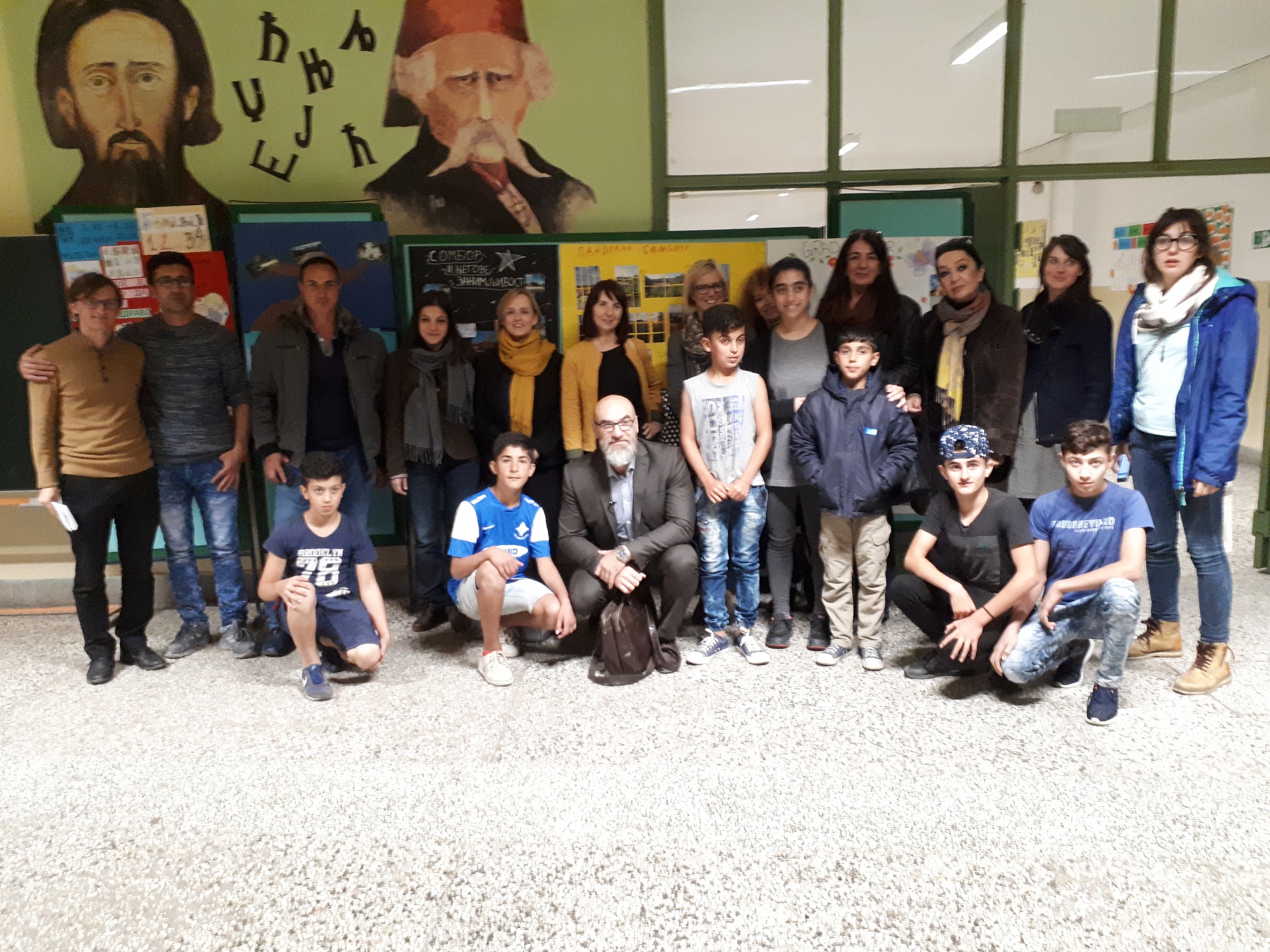European and national social partners meet in Serbia to promote the integration of migrants and refugees in education
Published:
From the 26-28 September 2018, the second case-study visit of the project “European Sectoral Social Partners in Education promoting effective integration of migrants and refugees in education” took place in Serbia, which was organised with the support of the ETUCE member organisation in Serbia, Teacher Union of Serbia (TUS), a partner to the project. The visit aimed at identifying challenges, concrete solutions and joint social partners’ initiatives put in place to effectively integrate migrants and refugees in education. ETUCE and EFEE representatives, the research expert accompanying the project (prof Nihad Bunar, Stockholm University) and representatives from the project advisory group from Slovenia (SVIZ-ESTUS) and Ireland (ETBI) had the opportunity to learn more about good practices and challenges in the Serbian education system with regards to policies on inclusion and integration.
During the study visit, participants had the chance to discuss with the Ministry of Education, Serbian Commissariat for Refugees, UNICEF, NGO representatives, teachers and school heads, migrant students and parents, refugee teachers and local political leadership how national guidelines for migrants’ and refugees’ integration in education institutions were formulated and implemented at all levels.
Being a transit country for refugees, Serbia is currently hosting 3360 asylum-seekers, including 344 children enrolled in 33 schools across the country. With a view to ensure access to quality education for asylum-seeking children, the Serbian community is mobilising in partnership to face a wide range of existing challenges; from language acquisition to teaching and learning in the mother tongue and in a second language, to catering for displaced students having experienced trauma or even to logistics and practicalities related to catering, transport to and from asylum centres and school supplies for a supportive school environment. Lack of and decreasing funding and financial support from international donors and institutions, poses an additional threat to the sustainability of the integration and inclusion process.
Across all the asylum centres and education institutions visited in Belgrade, Sombor and Subotica, the study delegation was made aware of the increasing demands on teachers, trainers and school heads at all levels of education when meeting migrant and refugee children’s needs. The need for continuous professional development on Serbian as a second-language, intercultural competences and psychosocial support, as well as compensation and reward for additional committed work carried out, was a focus of the discussion and is regarded as an essential prerequisite for effectively integrating migrants and refugees in education.
Concluding the visit, the social partners at national and European level agreed on the importance of continuous social dialogue on this important topic, as well as of strengthening partnerships with all actors from society and the school community, stressing the importance of an effective European cooperation based on better knowledge about the situation in the different EU and EU-candidate countries for delivering equal educational opportunities to migrant and refugee children.